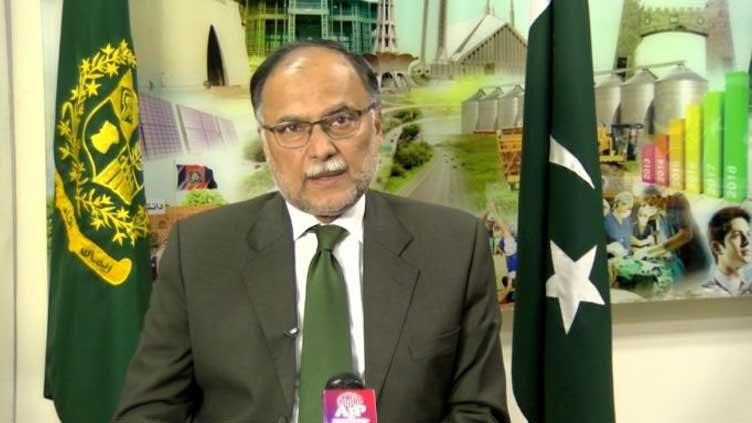Islamabad, Pakistan: In a groundbreaking move, the Planning Ministry and the Planning Commission of Pakistan, under the visionary leadership of Federal Minister for Planning, Development, and Special Initiatives, Professor Ahsan Iqbal, have constituted a high-level Policy Board. This initiative aims to enhance transparency and improve the economic planning process of the country with the active participation of private sector and corporate leaders.
The Policy Board, chaired by Professor Ahsan Iqbal, comprises a diverse group of esteemed members from various sectors, including former federal ministers, industry leaders, academic experts, and international professionals. Notable members include Mr. Shahid Ashraf Tarar, Ex-Caretaker Federal Minister; Mr. Musadaq Zulqarnain, Chairman of Interloop Limited; Dr. Rana Iqrar, Vice Chancellor of the University of Agriculture, Faisalabad; and Mr. Naveed Sherwani, an IT expert from the USA, among others.
The Policy Board has been tasked with several critical responsibilities. It will provide advisory on policy formulation and strategy development, offering guidance on policies and strategies aimed at promoting mid and long-term economic growth. Additionally, the board will offer insights on national and international economic issues, reviewing macroeconomic trends and providing economic outlooks to inform policy decisions. The board will also evaluate national plans and economic reports to offer recommendations, assess socio-economic trends to support evidence-based policy advice, and advise on policies to enhance national innovation and competitiveness. Furthermore, the board will integrate sustainable development goals into national economic strategies, facilitate dialogue with key stakeholders, and promote international cooperation. It will also review the impact of major economic policies to evaluate their effectiveness.
Chairing the first meeting of the Policy Board, Federal Minister Ahsan Iqbal emphasized the importance of this initiative in stabilizing Pakistan’s economy. He highlighted that the participation of the private sector would significantly improve the Planning Commission’s performance. The board members will play a crucial role in developing strategic frameworks and preparing short, medium, and long-term plans.
Ahsan Iqbal noted that the Policy Board would ensure the implementation of the 5Es Framework, the 13th Five-Year Plan, and Vision 2030. These frameworks prioritize key sectors such as exports, digital development, environmental sustainability, energy, and equity. The experiences and recommendations of the Policy Board members will also assist in formulating the national budget, making the process more transparent and reliable.
The Federal Minister reiterated the government’s commitment to transforming Pakistan into a trillion-dollar economy by 2035 through the effective implementation of the 5Es Framework. He called upon private organizations, civil society, and experts to collaborate in driving the nation toward stability and growth.
Members of the Policy Board expressed their appreciation for the inclusion of experts from the private and corporate sectors. They pledged their full support to the government’s initiatives, recognizing the significant impact this collaboration could have on Pakistan’s economic development.
In conclusion, the establishment of the Policy Board marks a major milestone in Pakistan’s economic planning process. With the combined efforts of the government and private sector experts, Pakistan is poised to achieve sustainable development and economic stability. The Planning Ministry’s initiative under Professor Ahsan Iqbal’s leadership is a testament to the government’s dedication to fostering a prosperous future for the nation.


Leave a Reply